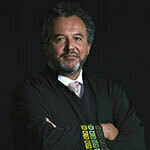Time: Thu Apr 18, 2024, 12:30PM – 2:00PM
Location: 1030, Jenkins Nanovic Halls and Live on Zoom
The Special Jurisdiction for Peace (Span. JEP) is a transitional justice mechanism created as part of the 2016 peace agreement signed between the Colombian government and the Revolutionary Armed Forces of Colombia (FARC-EP) guerrilla group. Colombia’s transitional tribunal was established to investigate, prosecute and sanction those who committed international crimes during the Colombian armed conflict. Its focus has been on achieving truth, justice, reparation, and non-repetition. Likewise, the JEP’s objective is also to contribute to the reintegration of offenders.
While the use of restorative justice in the JEP’s cases presents an opportunity to promote a more inclusive and holistic approach to justice, a myriad of questions and challenges also arise, such as:
- How will the JEP guarantee victims’ rights and their participation in the restorative process?
- Within the framework of restorative justice, which elements seem crucial for the process of reintegration of offenders to be successful?
- Which kind of challenges do judges face when they integrate restorative principles in sanctioning war crimes and crimes against humanity?
Panelists will offer insight on the challenges faced and advances made, while reflecting on practices that can assist future transitional scenarios. This includes the development of local solutions that transform armed conflict and observe International Law standards.
Panelists:

Introduction by R. Scott Appleby, Marilyn Keough Dean and professor of history

Justice Roberto Vidal, president and magistrate of the JEP

Justice Marcela Giraldo Muñoz, magistrate of the Judicial Panel for Amnesty or Pardon in the JEP

Justice Ana María Mondragón Duque, deputy judge (Magistrada Auxiliar) at the JEP

Carl Stauffer, senior expert, reconciliation, United States Institute of Peace

Nicolás E. Buitrago Rey, Ph.D. fellow and doctoral student affiliate, Kellogg Institute for International Studies

Moderated by Josefina Echavarria, professor of the practice; director of the Peace Accords Matrix
This event takes place within the framework of the Legacy Project at the University of Notre Dame, which seeks to preserve the digital archive of the Colombian Truth Commission, and provides unique sources of testimonies from more than 30,000 victims, witnesses and offenders of the 52-year-long armed conflict.
It is cosponsored by the Kellogg Institute for International Studies, Lucy Family Institute for Data & Society, and Clingen Family Center for the Study of Modern Ireland.




